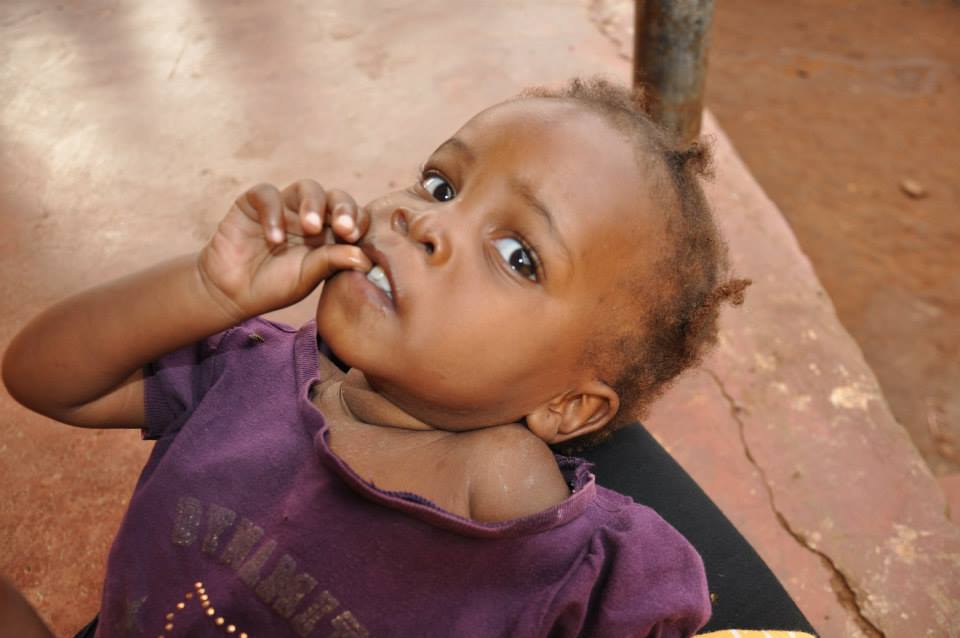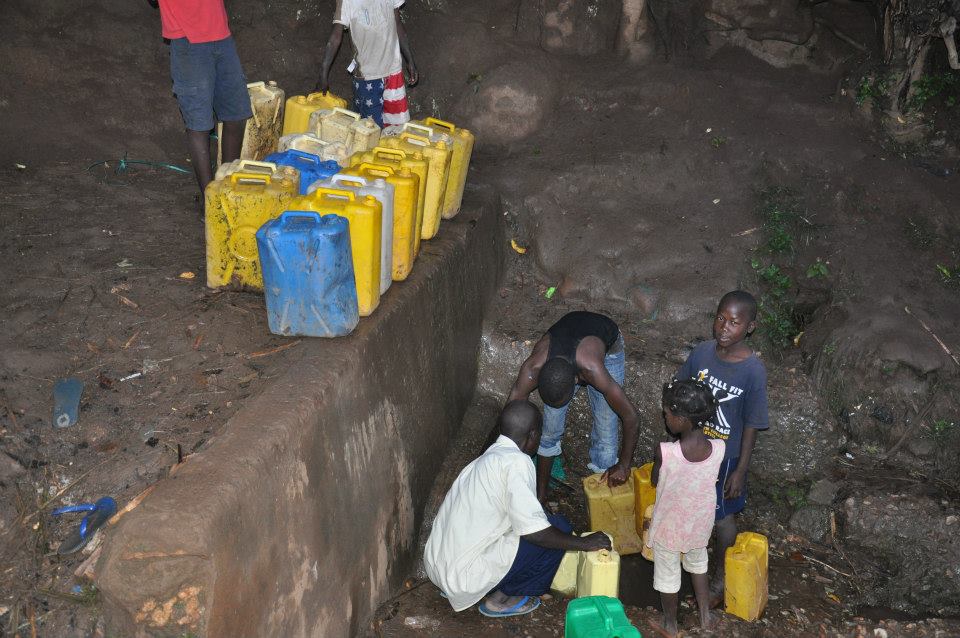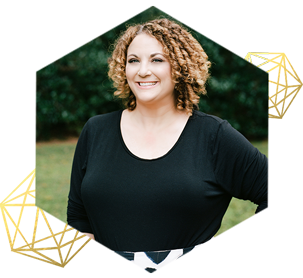I’m freshly back from my trip to Uganda and I suppose I owe you a thorough update of the goings on. I appreciate your patience while I was away and am grateful to my assistant Jenn and our awesome roster of guest bloggers for keeping the home fires burning while I traveled for 4 solid weeks (oy!). Lucky Break readers were so incredibly generous and excited about my Ugandan trip and I’m still a bit overwhelmed by your support. The developments of the last few weeks are wild and a bit hard to follow, so I hope you’ll bear with me as I try to encapsulate recent events. A full accounting of how your funds were spent will be emailed to all donors next week.
The “goings on” in Uganda were complex and nuanced and that translates into a novel-worthy blog update, so I propose a pot of tea and a comfy blanket. If you prefer the abridged version: I went to Uganda. The orphanage where I was volunteering was ultimately closed while I was there. The shit hit the fan. I was unsafe. The children were unsafe. I am now home again but I ask for your prayers for them. The end. The longer version (which I’ll split into a few updates) goes something like this…

In June of 2013, my teenage daughter Chloe and I traveled to Uganda together for 3 weeks. My work as a consult for a Uganda-based NGO had previously brought me incountry, but this was Chloe’s first visit. She has long indulged a fascination with all things African and hopes to ultimately pursue a career in international development or human rights, so I invited her along on a journey to continue my work with that NGO. Chloe really wanted to work with children, so I signed us up for a week of volunteer work at a local orphanage through International Volunteer Headquarters (also known as International Volunteer HQ and IVHQ). We spent one week working with an NGO, then a few days on safari and finally dove into ten days of snuggling babies, changing diapers, feeding porridge and reading books… what could go wrong, right? Turns out, quite a bit. I encapsulated some of the woes in this blog post, but there were greater concerns than I could illuminate at the time that blog was written, including children slipping us notes asking us to get them (or a sibling) “out” as we left on our last day.
My heart was heavy with concern as I said goodbye to the kids at God’s Grace Orphanage (also known as God’s Grace Childcare Center), run by Maria Kiwumulo in the Kyebando area of Kampala. I had grave concerns about so many things:

● There were far too many of those children (131 sleeping in a handful of rooms).
● The circumstances by which they came to live at this orphanage were unclear (the orphanage mama said only that God sent them to her). The children told us that many of them had parents.
● The orphanage did not have any records for the children in their care. A few scrawled notes on pieces of scrap paper was all they had to tell the story of all of the children. Most of the details lived in the memories of the mama and her administrator. While visiting this summer, we helped compile a spreadsheet of each child with their photographs, name, age, height, weight, etc. but I was concerned by the lack of a paper trail for these kids. There were no daily counts as they were tucked into bed (often sleeping 4+ kids to a twin bed) to ensure they were all present and accounted for. Where did these children come from? Why were they here? Were their parents looking for them? Had they been unjustifiably separated from their families?
● The sanitation was deplorable, even for a developing country. Let me pause here and say that I’ve traveled to more than two dozen developing countries, so these types of living conditions aren’t particularly foreign or novel to me anymore. And yet the conditions at this orphanage were still shocking. Two tired, overworked + old pit latrines served as the only toilets for 150+ people (all the children, teachers, volunteers and staff). Children defecated on the edges of the property and urinated just about anywhere. There wasn’t a steady supply of diapers, so the youngest of them frequently soiled themselves and sat in their feces until one of the few caretakers took notice. The mattresses and couches reeked of human waste from repeated soils.

● Many of the children were plagued by serious cases of ringworm, malnourishment, parasites, angry rashes, runny noses and deep, nasty coughs. There were no funds to treat these children.
● In researching the orphanage, I’d run across a myriad of blogs from former volunteers who had been working at the orphanage the previous summer and each referenced 40-60 kids. The orphanage had been around for 9 years and only amassed 40 kids? Then why in the last year did they accept 90 more? Why the sudden explosion in population?
● The mama seemed to have a stranglehold on these children- if she was ill, they would sleep outside and spend the night in fervent, hysterical prayer. She frequently instructed them to fast and they fasted for days on end. They followed her directives to the letter and while I’m all for discipline and well-mannered children, something was seriously off about the way these children seemed controlled and intimidated by the mama. They couldn’t take a carton of yogurt from my hand unless she granted them permission.
● Multiple children complained to us of beatings and we noticed the large stick in the corner of the classrooms. Caning is a frequent- but illegal- practice in Uganda.
● The orphanage wasn’t satisfactorily funded. Sometimes there was no money to feed the kids. Other NGO’s had offered to supply consistent funds if an organizational structure and financial transparency could be implemented but the orphanage mama refused, to the detriment of her children. The younger children attended an on-site school (unregistered and uncertified), but the older ones attended a local school and frequently had to miss classes because of unpaid school fees. The children were constantly worried about the origin of their next meal. Despite those concerns, Maria Kiwumulo continued to accept new children.
● Several NGO’s had backed away from the orphanage just prior to our arrival, with swirling allegations of financial misappropriation and poor management. These organizations were called “enemies” by the mama and the children, despite having funded operations, organized special days for them, worked to improve the property and more. The mama told the children who to trust and who to not- and the “who to not” category included anyone who asked too many questions or suggested a different way of doing things.

● The orphanage was not registered with the government as an orphanage. If it had been, then there would be a capacity limit, a requirement to keep a nurse on staff, a social worker overseeing affairs, etc. It was operating illegally and outside the confines of the law with no oversight.
● Ugandan law dictates that orphanages should be temporary homes while children are either reunited with extended families or cleared for adoption. They are not meant to be permanent solutions and each orphanage must have an “exit plan” which informs how they will research and reunite these families. This orphanage had no such plan and the mama readily admitted that no children would ever be adoptable, explaining that God had sent them to her and they were now a family.

● The facility lacked a perimeter fence, in violation of Ugandan requirements for orphanage facilities. God’s Grace Orphanage was situated in a slum that mama herself called “dangerous” but there was no attempt to keep the community off property nor any attempt to keep children on property during the day. While visiting, mama complained that neighborhood teens had convinced one of her boys to steal phones from the teachers and sell them for pennies. If there had been a fence, those influences wouldn’t have so readily exerted themselves and volunteers wouldn’t worry that one of the 131 could wander off into the slum unnoticed.
Before I left Uganda in late June, I spoke with the local volunteer coordinator about the situation. James Nadiope/ Rev. Jim Nadiope/ Prince James Kange Nadiope is the director of International Volunteer Network (also known as IVN Uganda) which operates as the incountry partner of International Volunteer Headquarters (which is also known as IVHQ or International Volunteer HQ) in Uganda. The volunteers, who are under James’ control while incountry, had alerted him to their concerns, but he either dismissed or minimized each one. One thing we could agree upon: these kids needed a new home. He agreed to pay the first three months’ rent and I agreed to take over from there. I was worried about my personal liability for funding an illegal facility, so his offer of preliminary rent provided the perfect opportunity for this orphanage to get their ducks in a row, so to speak. After three months, if they had obtained a legal registration, then I’d make certain that the monthly rent was covered. There were a few strings attached: maintain that legal registration, stop accepting additional children (or this new space would soon be overcrowded, too), ensure the babies used the cloth diapers I was going to provide (or this new home would soon be as soiled and unsanitary as the old), make the true orphans available for adoption, etc. I would pay the rent directly to the landlord for each month that those conditions were met. I toured several homes before leaving and settled upon a facility with two flushing Western-style toilets, two outdoor toilets, a perimeter fence, a suitable yard for recreation, a proper indoor kitchen, great air flow, big windows and four more bedrooms than the existing facility. The orphanage was eager to move and we even negotiated the rent with the landlord, but the line went dead once my conditions were outlined. The deal was off. Maria Kiwumulo was unwilling to cap her capacity nor allow children without parents to be adopted.


Upon arriving home in July, I stayed in touch with both orphanage staff and the 8-or-so volunteers from our team who remained behind. My concerns continued to mount. At one point, R, one of the teenage boys for whom I had a particular affinity, informed the volunteers that he was running away and planning to live on the streets. The volunteers called me in a panic and we convinced the boy that his plan was dangerous and ill-conceived. I offered to put him in a boarding school and he provided us the phone number of his mother so that we could obtain permission. I asked my dear friend Robert (a level-headed, well-educated Ugandan who works for the incountry NGO for which I consult) to make contact with his mother and explain the situation, as a language barrier prevented me from doing so myself. They exchanged several calls and she agreed that moving him was best. We began researching boarding schools and I wired funds to Uganda for his tuition and care. Robert and his wife even agreed to take care of the child in their home when the school was on break and during holidays. I was excited for him and all the possibilities his future held. On the day his mother was to arrive at the orphanage to claim her son, she instead arrived at the orphanage and told them that her son was making problems and that Robert had communicated concerns about the orphanage. R was summarily beaten and left at the orphanage. I cried for days.
Further, after posting a blog about my experience at the orphanage, emails started to drift into my inbox from other NGO’s and volunteers who shared my concerns. The stories they told mirrored my experience and amplified my concerns. Some of these organizations had been working with the facility for a year and as they reached out to me, the dots began to connect.

There are certainly two lenses through which one can view this situation. Either Maria Kiwumulo loves children and continues to take them in despite not having the resources to do so OR there’s a larger and more nefarious agenda at work. After months of research about the history of God’s Grace Childcare Center, connecting with a dozen other parties who had intimate knowledge of the orphanage’s operations, continued contact with orphanage administrators and communication with current volunteers, I realized that it was the latter and not the former. That decision was not hastily-made nor ill-informed. I wanted desperately for this to be a case of an abundance of compassion and an absence of wisdom, but all signs pointed to something more sinister.
I decided to return to Uganda in September. The story of what happened during this recent visit will have to wait a few days… surely this blog post is lengthy enough. Once I tame my inbox, I’ll be back to pick up where I’ve left off.
This blog series continues right here.





My heart goes out to you and the children. Thank you for this post and thank you for helping these kids! I am otherwise speechless. I look forward to connecting to you soon.
Hope
Thanks Hope. I don’t ever want to relive the last 3 weeks of my life. Please keep these children close in your thoughts.
i love to join you lela
Hello Lela
This is terrible. I am relieved that these poor children were relocated to safety.
I recently sent a donation to an orphanage called Gods Grace Orphanage.
https://web.facebook.com/GodsGraceorphanageHome7
I failed to check them out properly I’m afraid.
Their Facebook page is above.
Is there any connection with this one in Uganda?
Hello Lela, This is a very disturbing story – but sadly not unique. I founded a volunteer travel organisation – we founded it to campaign for responsible volunteer travel by demonstrating how it could be done. We campaign actively for better volunteering and better child protection and this year we are finalists for international awards recognising our work in both these areas – the results.I wonder if you have seen any of the work that responsibletravel.com have been doing on setting criteria for volunteering in childcare projects – we worked closely with them on this.you may like to take a look at our facebook pages – better volunteering – better child protection and responsible volunteering people and places. I would welcome the opportunity to learn mopre about this experience from you – perhaps you would email me? all the best. Sallie
Sallie, I know this story is not unique (oh, how I wish it were!) but I do believe that most volunteers are unaware of the inadvertent harm they cause to the very people they wish to help. This is the first blog in a series and I plan to elaborate more on that issue sometime next week. I’m grateful to be introduced to your company and appreciate your efforts to do things the “right” way. I’ll connect with you on FB so that we can continue the conversation.
great to be connected Lela – the offer is genuine – when and if you do think we can help please do let us know.Volunteer sending organisations are the gate keepers for most volunteer travel – they must be held to account. The right people in the right places – well matched – well prepared and well screened – placed in properly screened projects – can make real contributions to vulnerable communities and feel a real sense of the value they bring. Lets not end it – lets mend it!
“I signed us up for a week of volunteer work at a local orphanage through an international organization.”
I humbly suggest that you have an obligation to name this ‘international organisation’ – to help other potential volunteers to avoid falling into the same or similar trap – and at least as important (and probably MORE SO)to help protect other vulnerable children.
Please – ‘out’ the organisation – name them and demand an explanation!
Kate, I’m currently in talks with that organization and am hoping they cut ties with their incountry partner. If they fail to do so, then I will certainly amend this post to be far more specific (and hyperlinked). I hope you understand that much of this is nuanced and I’m doing the best I can to ensure that the facts are known and that the appropriate parties have the opportunity to make things right before being publicly named.
I have been working with an orphanage in Kawempe District just outside of Kampala, Uganda, and have an almost identical story to yours. I’m wondering if there is a way to contact you to ask you some questions about reporting this kind of neglect and abuse of the children in their care. I need your help.
Julie, please contact me at lela@luckybreakconsulting.com and I’ll do my best to put you in touch with the proper authorities. In your email, please be as specific as possible about:
1. Whether or not you are currently incountry
2. Your nationality
3. If you volunteer through an organization or independently
4. The name of the home and its location
5. Your specific concerns with regard to the home
I promise to do my best to assist. Be well and stay safe.
Hello Julie,
if people have concerns about cases where kids are beeing abused or misstreated in residential centers, we advise volunteers to document all facts (evidence) and to contact the authorities. You should maybe do it yourself or help Lela. If they do not help or you cant fiend the informations, the relevant UNICEF country office of UNICEF should be able to provide helpful information. Also other international NGOs are helpful, such as Freinds International (they unfortunately do not work in Uganda). Good Luck! We would be interested in more details to draw more ettention to this topic which you could post here:
https://www.facebook.com/pages/Responsible-Volunteering/270333629677425?fref=ts
Also inform networks or tourism Organizations about your concern, after you have left. Just be careful and better do it once you are gone or once you left the placement. Very often it can be dangerous: people are threatened as they may lose money, their jobs or even could get imprissoned!
We are impressed by the passion and energy which is striving you! To often Volunteers leave their volunteer placement without knowing that they unintentionally supported a corrupt Organization or even child abuse. And even often Volunteers have a bad feeling, but do not make their concerns public! We appeal to everyone who had a bad experience and felt that the company and organization was unsustainable: USE YOUR POWER AND WRITE ABOUT YOUR EXPERIENCE! Help others with feedback.
And if you feel there could be something wrong: talk to international organizations that are connected to child protection which are working in the country you volunteer in. Get advice, then act. often it is better to first get outside advice. Please post your experience with us as well or write us a message for advice how to act or whom to contact:
https://www.facebook.com/pages/Responsible-Volunteering/270333629677425?fref=ts
The Volunteerism Market is changing, but slowly. The consumers (Volunteers) need to get more sensitive about how and where to volunteer. This can only be achieved if more International Organizations (UNICEF, Friends International) draw attention to this problem. Kids loose their ties to their communities as they get placed in orphanages. Orphanage pop us due the supply of Volunteers companies have. And often these orphanages hardly profit from Volunteers and the sending companies. Why? Often the orphanages themselves have no interest to develop their programs and in addition companies such as Project Abroad, Real Gap (TUI), IFRE, IVHQ or Global Crossroad do very little to reach sustainability or to monitor or evaluate the impact of their programs. The most important words are: Demand and supply! The companies pretend to be Organizations and to work for a cause, but they don’t. This are big and professional travel agencies, nothing more. often they hardly know anything about their in country partners or the placements they send their volunteers to. Please, everyone: Think twice when you decide to volunteer and ask critical questions before signing up! And make sure you know the placement BEFORE you pay!
Good Organizations to contact
Fair Unterwegs (Switzerland)
Tourism Watch (Germany)
Friends International (World Wide)
UNICEF in country office(World Wide)
Responsible Volunteering – People and Places
And many more!
And dont forget to blog about your experience using the names of the placements and company you volunteered with as often as possible!
Hi Lela,
you are awesome, I pray that someone with the kind of heart you have also shares their experience with other Volunteers. this is a very sad story and experience… I normally ask myself why some international Volunteer organisation partner with such unregistered orphanage centers, please update us more on your findings and maybe step forward… its really sad the way the children are treated 🙁
I am going to Uganda this December and I will also share with you my experience if I similar thing happens.
So happy to hear that others are catching onto the premise that orphanage tourism is a dangerous practice. I started as a naive volunteer in Uganda many years ago and have learned first hand about the damage orphanages cause as well as the vicious cycle that is perpetuated by Western funds and adoption. I invite anyone who wants a volunteer experience that is not damaging others to visit our website or contact me. I want to put an end to orphanage tourism! Would love to connect with Sallie Grayson who commented earlier:)
Hi Suzy – my email is sallie@travel-peopleandplaces.co.uk
Are you familiar with: Grace Of Hope Orphanage, Uganda ; Director: Kadoga Antoni Gahula?
Hello Lela
This is terrible. I am relieved that these poor children were relocated to safety.
I recently sent a donation to an orphanage called Gods Grace Orphanage.
https://web.facebook.com/GodsGraceorphanageHome7
I failed to check them out properly I’m afraid.
Their Facebook page is above.
Is there any connection with this one in Uganda?
May God our Lord bless the work of your hands.Am so happy for the nice heart u have for helping orphans.Me to love working in children and feel so happy when am in children